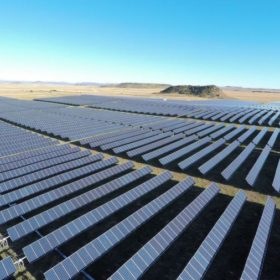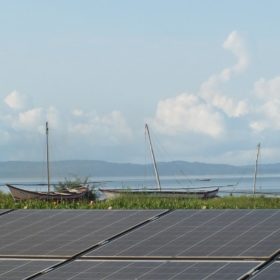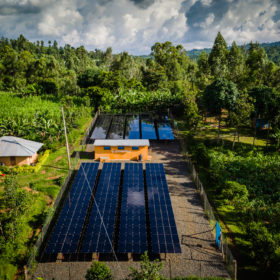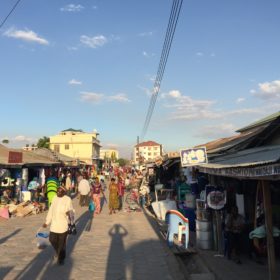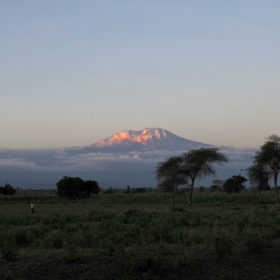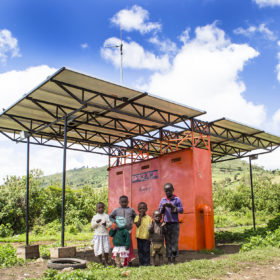African nations could install 30 GW by 2030: BSW-Solar
A new report analyzing 10 solar markets throughout Africa claims that the continent’s PV market could expand from about 5 GW at present to up to 30 GW by the end of the next decade.
Off-grid solar could bring electricity to 740 million people by 2022
As RP Global starts work on 11 solar hybrid mini-grids on Lake Victoria that will supply electricity to 160,000 people, analyst Wood Mackenzie has released a report stating how increased capital flows in the sector may still fall short of securing universal electricity access by 2030. Nonetheless, off-grid solar is the cheapest and most viable solution for remote areas and attracts investment from fossil fuel majors and venture capital funds.
Shell Foundation and Rockefeller support $11bn African mini-grids fund
Crossboundary Energy Access – which claims to be the continent’s first mini-grid financing facility – wants to unlock $11 billion in private capital to bring energy to 100 million people in sub-Saharan Africa. Raising capital has been a struggle despite mini-grids being lauded as a solid solution for electrification.
Zola receives $32.5 million for expansion in Tanzania
Zola Electric has received financial backing worth $32.5 million from social investment firm Symbiotics and the Dutch development bank FMO. The lending facility will be used to grow Zola’s operations in Tanzania over the following five years.
$126 million earmarked for small-scale RE in Africa
During COP24, U.K. Energy Minister Claire Perry announced that her government will increase its efforts to help bring clean energy to Sub-Saharan Africa. A total of $126 million will be channeled via the REPP platform, which has already realized 18 projects with a considerable number of beneficiaries.
Risk of a ‘bridge to nowhere’ effect in Africa’s electrification
A report from the United States’ Rocky Mountain Institute finds more work is needed on the demand side for microgrids and other rural electrification projects in Africa. Such projects, says the report, often focus on building generation capacity, with little consideration for the ability of end users to make good use of energy.
Tanzania launches 150 MW solar tender
Tanzanian power utility Tanesco wants to build solar plants across six regions. Successful projects will range from 20 MW to 50 MW in size and the tender has been launched as the nation tries to ramp up solar’s share of its energy mix.
Tanzania to host two MW-sized solar mini-grids
Tanzania-based mini-grid operator, Jumeme is tendering two 1 MW projects in the Rukwa and Katawi regions. The projects are being developed in the frame of the Micro Power Economy, Tanzania Roll out program, which is financially backed by the Africa Enterprise Challenge Fund (AECF).
Adding businesses to microgrids helps financial viability
Adding energy-intensive industries to microgrids can help refinance system costs and can lower tariffs for residential consumers, a study suggests. To achieve this though, accurate system design and sizing are essential.
Off-grid solar boosts income by 50% of household GDP in Africa – study
Gogla has released a report showing the positive economic effects of deploying small-scale pay-as-you-go solar systems in off-grid regions. More than half of the survey’srespondents reported having increased economic activity, with many of those starting new businesses or significantly increasing their household income.
